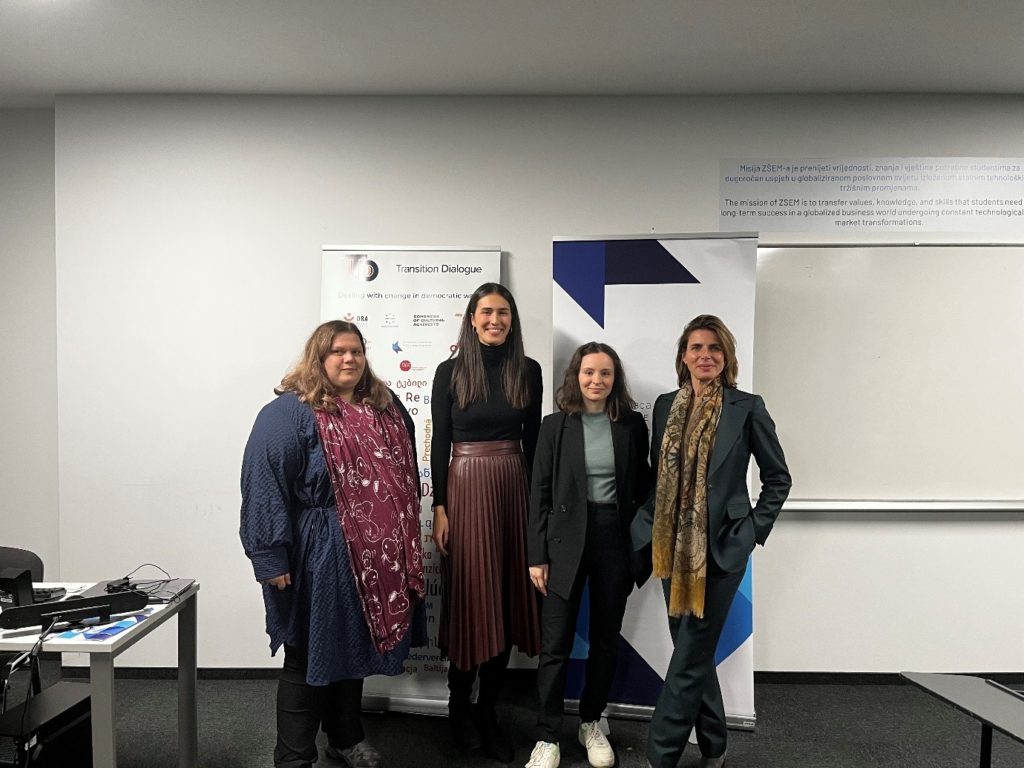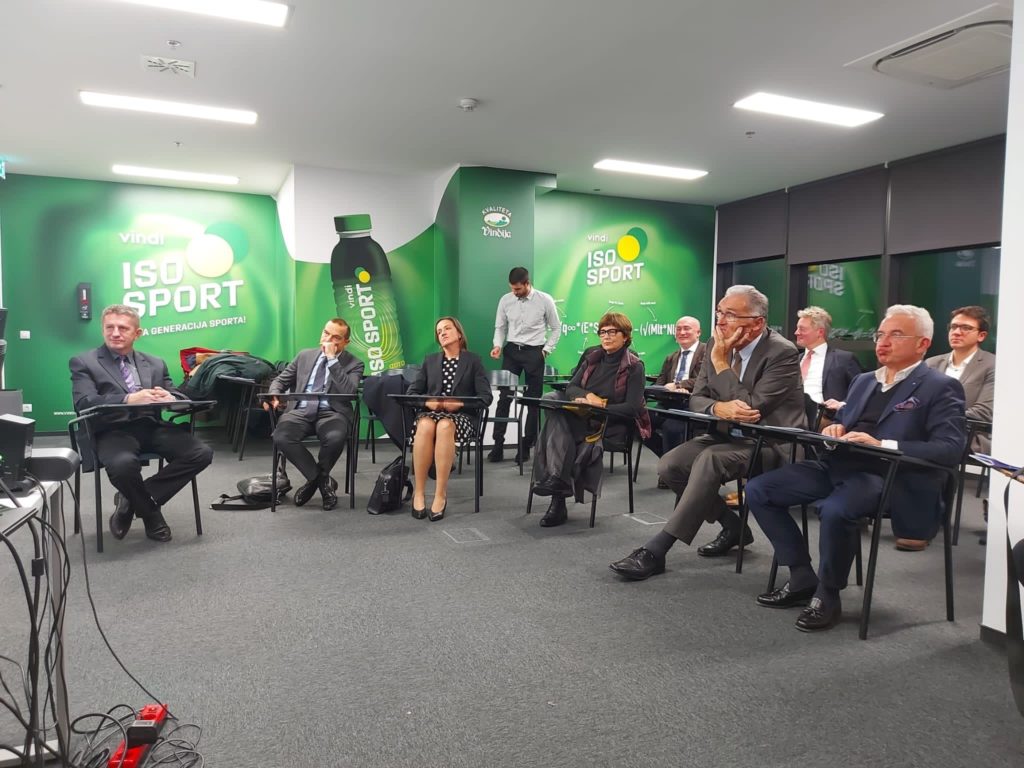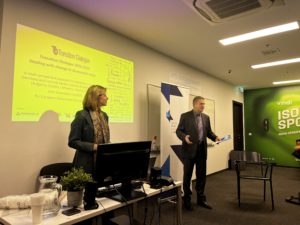The results of the international project Transition Dialogue 2019-2022 — Dealing with change in democratic ways were presented on 23 November 2022 at a gathering of experts and media representatives at the Zagreb School of Economics and Management.
The project started with a mapping of how the political, economic and sociocultural dimensions of the transition after the fall of communist regimes in Central, Eastern and Southeastern Europe were taught in modern history classes in schools. The project teams then developed new, additional learning materials to be used in formal and informal history and civic education, especially covering topics missing, and controversial issues from multiple perspectives.
The international consortium was coordinated by two civil society organizations, Deutsch-Russischer Austausch DRA e.V. (Germany), and Sofia Platform Foundation (Bulgaria). The Institute of Social Sciences Ivo Pilar, together with the foundation Znanje na djelu, participated as Croatian partner in the project, besides partners from Lithuania, Poland, and Ukraine. The project was financed by the German Federal Agency for Civic Education.
The Croatian team focused on economic aspects of the transition, with a lesson plan covering the topic, and eyewitness interviews, which were presented during the gathering. As such, the project outcomes in Croatia are a contribution to economic literacy, which is an essential part of civic literacy. All materials are available upon request and will be published online, together with the handbook: “Teaching history of transition in Europe. A handbook for history and civic education”. The Transition Dialogue project team was led by dr. sc. Caroline Hornstein Tomić, Institute of Social Sciences Ivo Pilar; with project coordinator: Maja Kurilić, foundation Znanje na djelu; economic expert Vedrana Pribičević, Zagreb School of Economics and Management, and history teacher Vedrana Ristić, III. Gymnasium in Osijek. The project team was advised by experts from Pilar Institute (dr. sc. Ivan Hrstić, prof. dr. Drago Čengić), by Velimir Šonje (Arhivanalitika); experts from university faculties for history and political sciences, history teachers and school book authors were consulted at various stages of the project.



